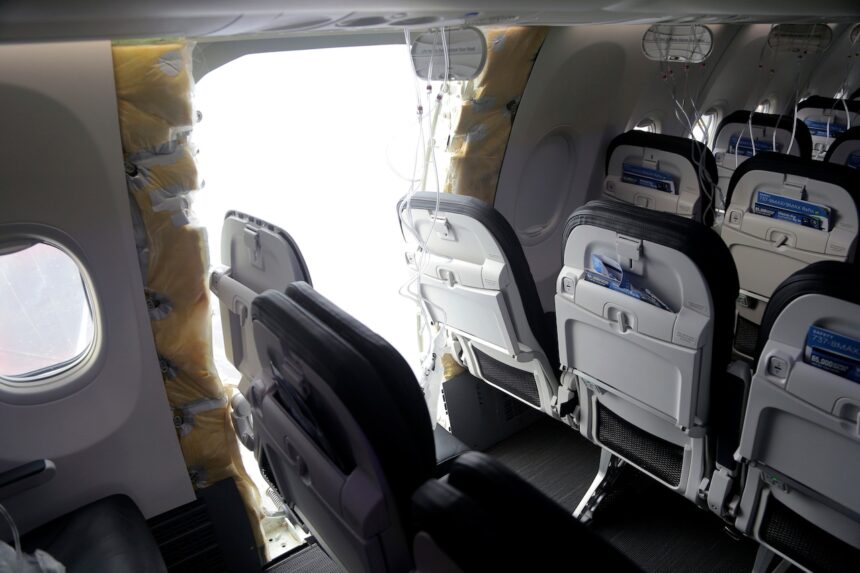The Federal Aviation Administration (FAA) has proposed a substantial fine of $3.1 million against Boeing due to safety violations connected to an incident involving an Alaska Airlines 737 MAX. This incident occurred on January 5, 2024, when a significant panel blew out during a flight, endangering the lives of onboard passengers and crew.
According to the FAA, the investigation revealed numerous quality control failures at Boeing’s Renton, Washington plant and at its supplier Spirit AeroSystems. These violations were noted between September 2023 and February 2024, a critical period during which several safety measures were reportedly neglected.
In September 2023, a fuselage produced at Spirit’s facility in Wichita, Kansas—a manufacturer responsible for building the 737 MAX fuselages—was sent to Boeing for final assembly. Just six minutes into the Portland-bound flight in January 2024, a door plug measuring 2-by-4 feet dislodged, leading to a chaotic scene where various seat components, clothing, and personal items were ejected from the aircraft. Fortunately, the pilot managed to safely return to Portland International Airport for an emergency landing.
Details surrounding the quality infractions remain sparse, as the FAA has not elaborated on the specific issues identified. Nevertheless, the agency cited that Boeing attempted to present two planes that were not airworthy to the FAA for certification. Compounding the issue, Boeing has been accused of interfering with a safety program, known as Organization Designation Authorization (ODA), which allows select Boeing employees to assist FAA personnel in overseeing safety compliance. Reports surfaced that ODA employees felt coercive pressure from Boeing to overlook safety concerns in order to meet production schedules.
In response to the allegations, Boeing expressed regret over the January incident and emphasized its ongoing commitment to enhancing safety culture within the company. Boeing has initiated a series of safety and quality control measures since the blowout, including the development of performance metrics to ensure aircraft quality and encouraging workforce training. Furthermore, Boeing is in the process of reacquiring Spirit, reversing a decision made two decades ago to separate the companies. This merger is pending regulatory approval and both companies anticipate completion within this year.
While the FAA has exercised its maximum penalty authority, the proposed fine appears relatively minor when juxtaposed against Boeing’s substantial revenue—reported at $22.8 billion for the most recent fiscal quarter—despite a net loss of $612 million during that period. Industry analysts view the fine as insufficient to exert meaningful change within the company; some describe it as a mere “gentle slap on the wrist,” suggesting that Boeing has made progress but still has a long way to go to rectify its safety culture.
Others, however, such as Scott Hamilton, an aerospace analyst, voiced skepticism regarding Boeing’s claims of improvement. He remarked that references to ongoing issues with the ODA program signify persistent challenges rather than an authentic transformation in safety protocols.
As Boeing prepares its response to the FAA within the next 30 days, the repercussions of this incident and subsequent actions by the regulatory body underscore the FAA’s vigilance and commitment to ensuring aircraft safety in the aviation industry.





